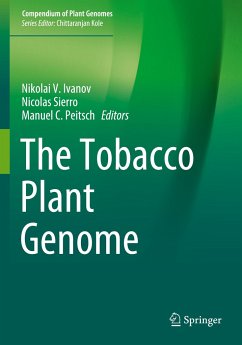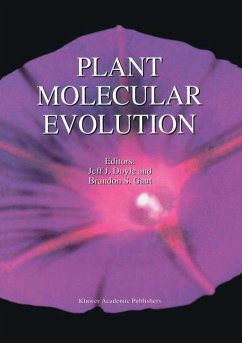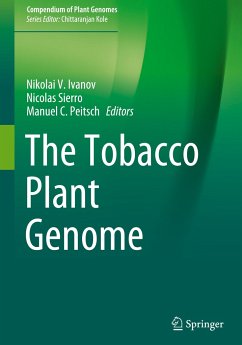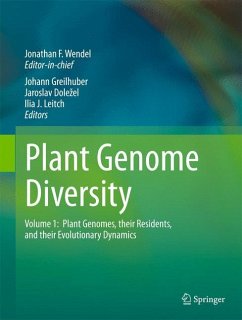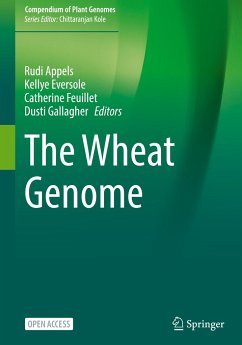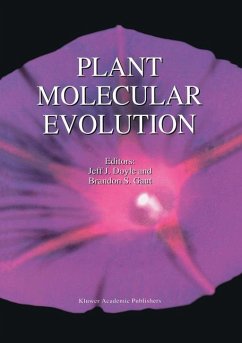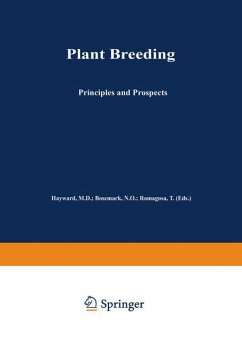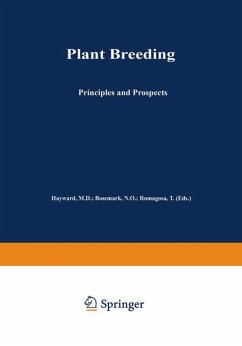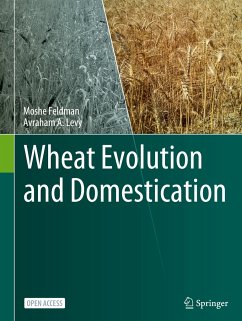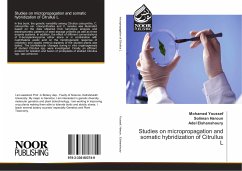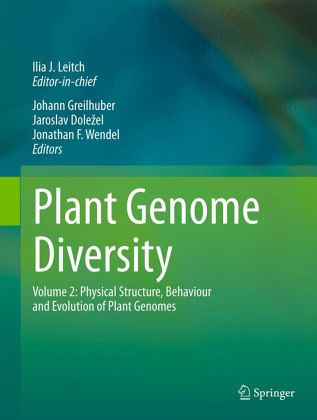
Plant Genome Diversity Volume 2
Physical Structure, Behaviour and Evolution of Plant Genomes
Herausgegeben: Leitch, Ilia J.; Greilhuber, Johann; Dolezel, Jaroslav; Wendel, Jonathan

PAYBACK Punkte
76 °P sammeln!
This second of two volumes on Plant Genome Diversity provides, in 20 chapters, insights into the structural evolution of plant genomes with all its variations. Starting with an outline of plant phylogeny and its reconstruction, the second part of the volume describes the architecture and dynamics of the plant cell nucleus, the third examines the evolution and diversity of the karyotype in various lineages, including angiosperms, gymnosperms and monilophytes. The fourth part presents the mechanisms of polyploidization and its biological consequences and significance for land plant evolution. Th...
This second of two volumes on Plant Genome Diversity provides, in 20 chapters, insights into the structural evolution of plant genomes with all its variations. Starting with an outline of plant phylogeny and its reconstruction, the second part of the volume describes the architecture and dynamics of the plant cell nucleus, the third examines the evolution and diversity of the karyotype in various lineages, including angiosperms, gymnosperms and monilophytes. The fourth part presents the mechanisms of polyploidization and its biological consequences and significance for land plant evolution. The fifth part deals with genome size evolution and its biological significance. Together with Volume I, this comprehensive book on the plant genome is intended for students and professionals in all fields of plant science, offering as it does a convenient entry into a burgeoning literature in a fast-moving field.




